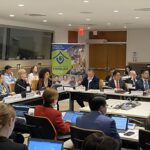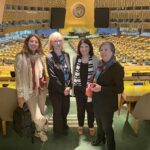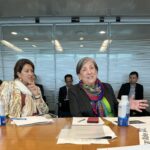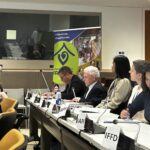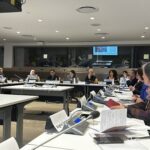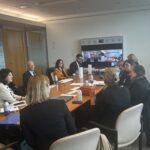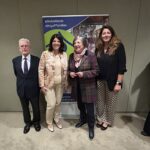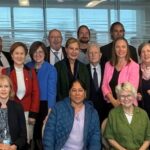Home Renaissance Foundation and the International Center for Work and Family of the IESE Business School have carried out a study to understand the impact of housework on individuals, their family relationships and their well-being at work.
The results have yielded interesting data on how levels of well-being at work improve (psychological empowerment, job satisfaction, greater professional commitment or job crafting) when the attitude towards housework is positive. It is also observed that couple relationships and communication with children improve when there is good planning and disposition towards housework. The negative note: the misuse of technology, the lack of techno-references and phubbing threaten our mental health and family well-being.
On Tuesday 16 May at 19.00 at the Fundación Telefónica (C/Fuencarral, 3. Madrid) and as part of the Telos Cycle ‘The Future of Work’, we will analyse the results of the study with experts in a round table discussion. It’s free but registration is required.
Participants:
Antonio Argandoña, Home Renaissance Foundation
Professor Emeritus of Economics and Business Ethics at IESE Business School. He is the holder of the CaixaBank Chair of Corporate Social Responsibility at IESE Business School. He is the author of numerous books and articles on economic theory, Spanish and international economics, general economics, ethics applied to economics and business, corporate social responsibility and corporate governance. Since 2017 he is one of the directors of the Home Renaissance Foundation for which he has edited four publications.
Begoña Pérez, La Ordenatriz
Known on social media as La Ordenatriz, Begoña Pérez is a professional home organiser, married and mother of seven children. She accumulates thousands and thousands of followers on the different platforms with whom she shares her tidying and cleaning tips. In September 2022 she published a book entitled ‘Cleanliness, order and happiness’.
Carmen del Campo, Mutua Madrileña
Director of Innovation at Mutua Madrileña where she has been working for 4 years, previously she was head of the Market Intelligence area for cities at Ferrovial, and did strategic consulting for the public sector at Deloitte. She holds a degree in Law and Business Administration from the University of Navarra and a Bachelor of Business Administration from IESE Business School.
José Miguel Cubillo, Expert in Family Therapy
Graduated in Psychology and Architecture, José Miguel Cubillo has combined professional practice with teaching throughout his career. He has been a guest lecturer at various international universities and is also an expert in family therapy. He was for years the president of the association Aula Familiar and, later, president of the International Federation for Family Development in Spain, an institution with General Consultative Status at the United Nations.
María Zabala, iWomanish
María Zabala is the Director of Society and Technology at Alabra. As a journalist has been working in communications for more than 20 years. After many years in news agencies, radio, press and television, she focused on the biomedical and scientific sectors from where she reflects on the impact of the digital society on our lives. As a consultant, she advises companies and institutions on digital education content.
María José Olesti, The Family Watch
She is a lawyer and managing director of The Family Watch, the international institute for the study of the family. Maria José has been working for the foundation since 2012. She holds a law degree from San Pablo CEU University and a Master’s degree in Social Leadership from IESE Business School. She is also a family advisor at IFFD.
LINK FOR REGISTRATION HERE
